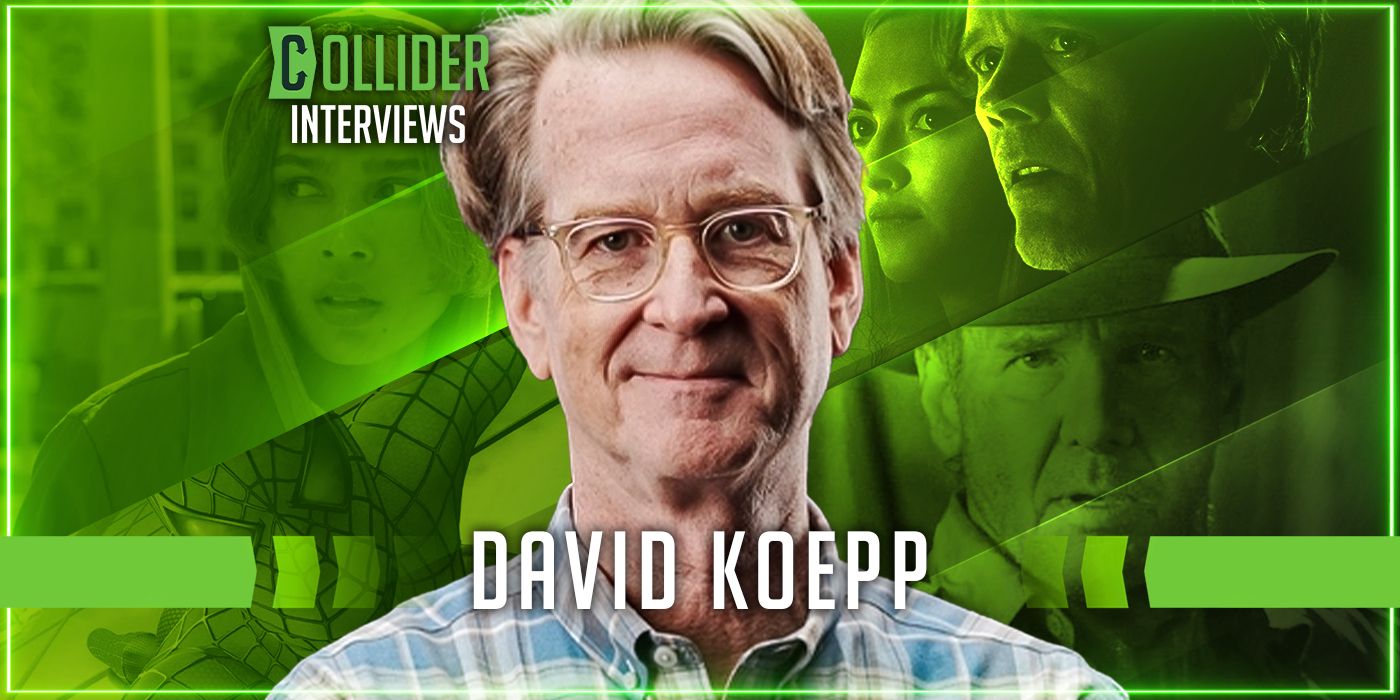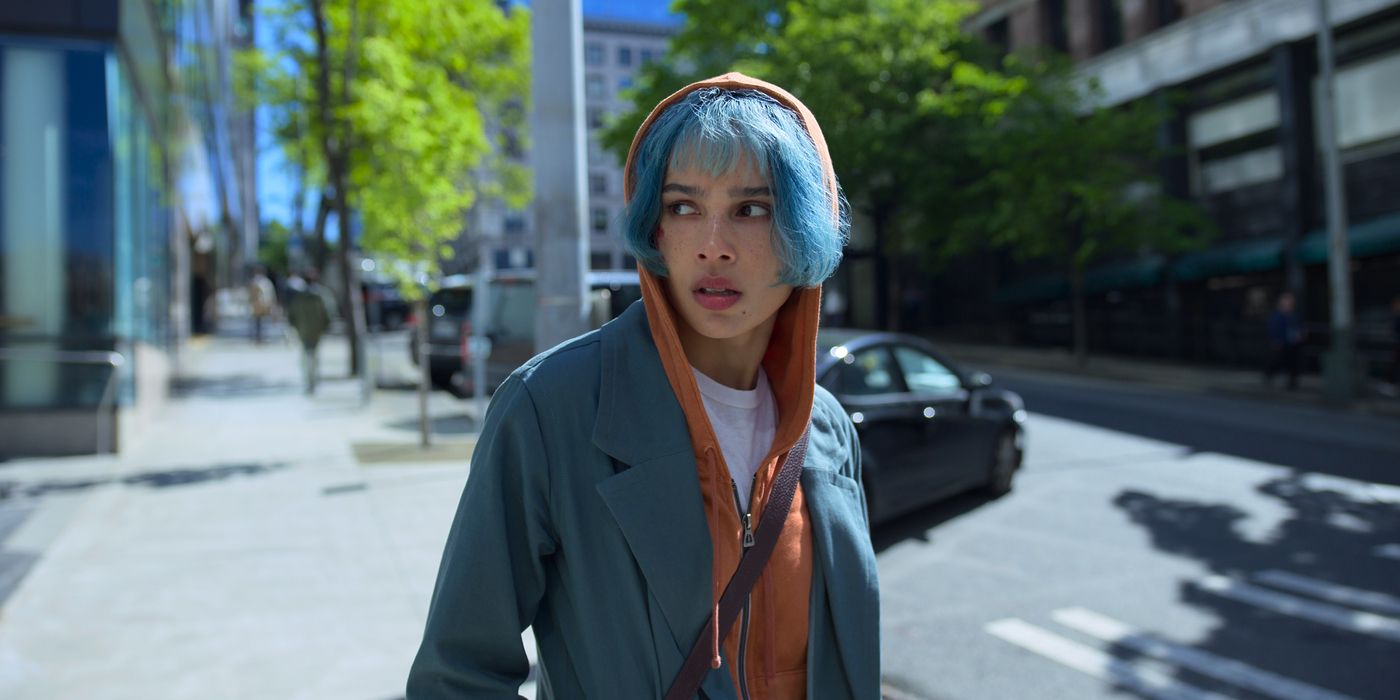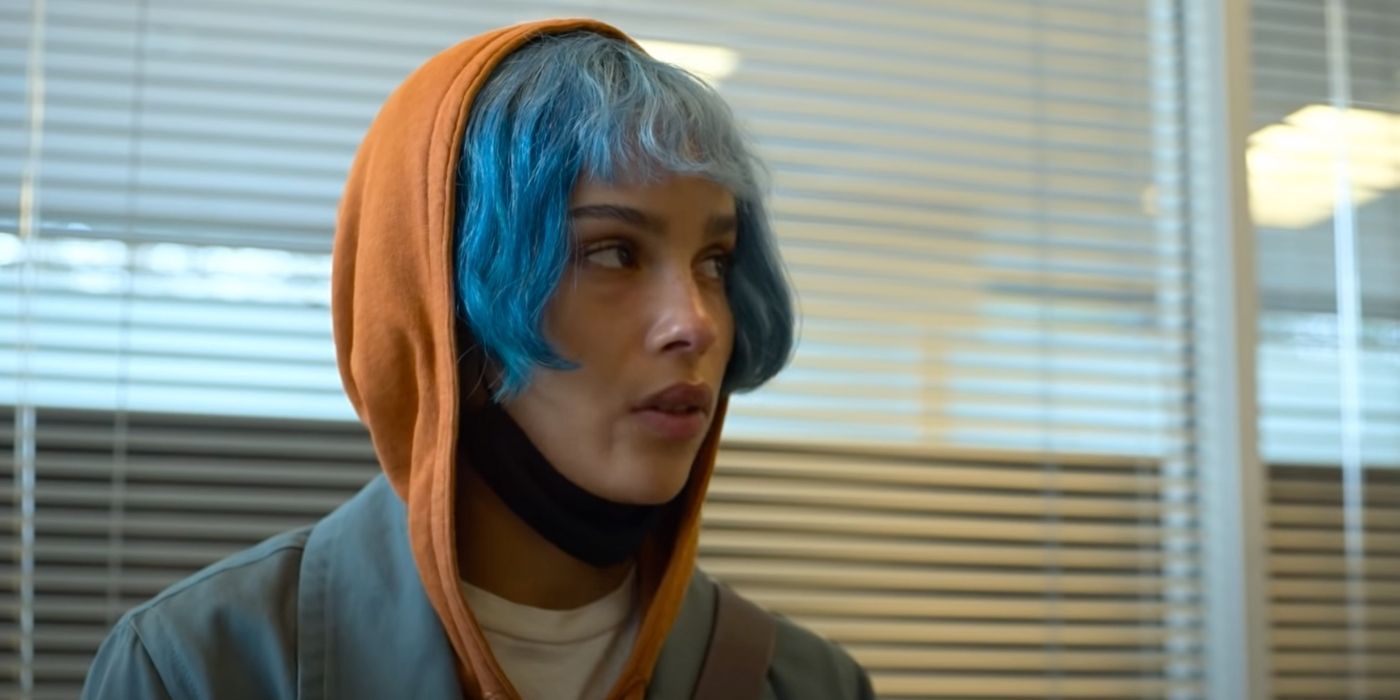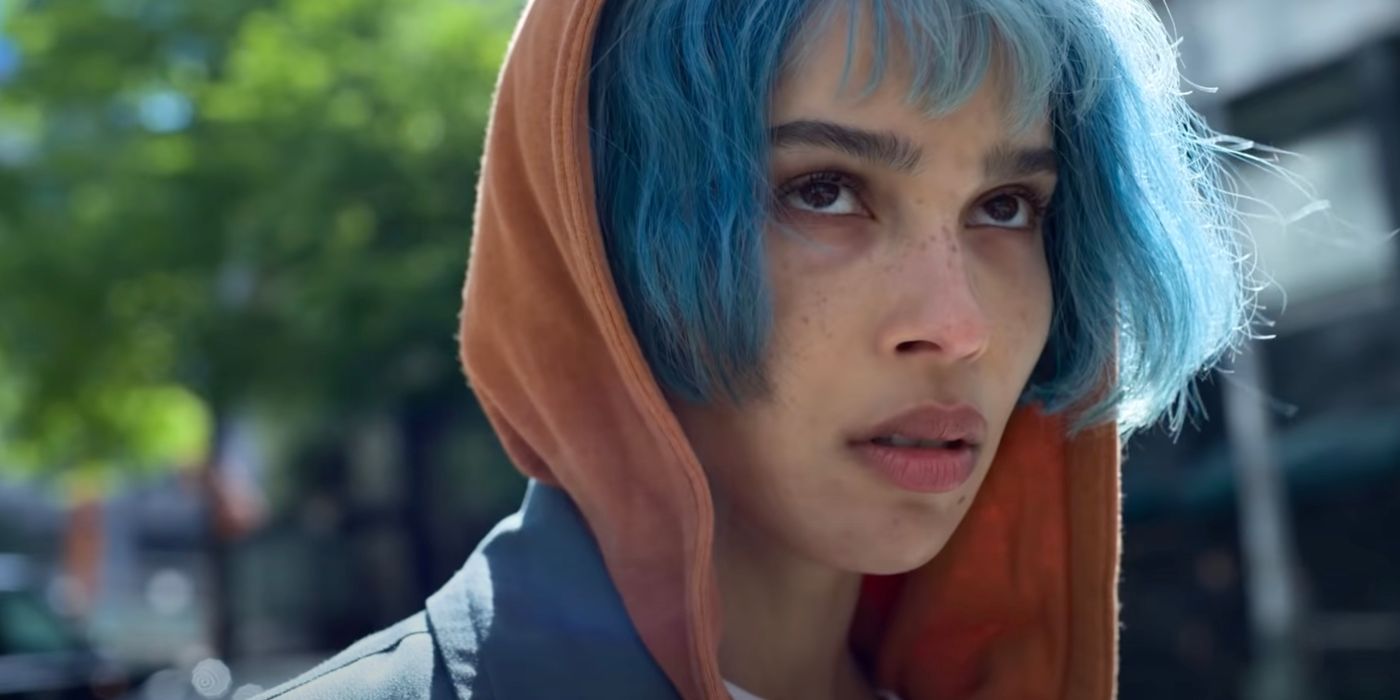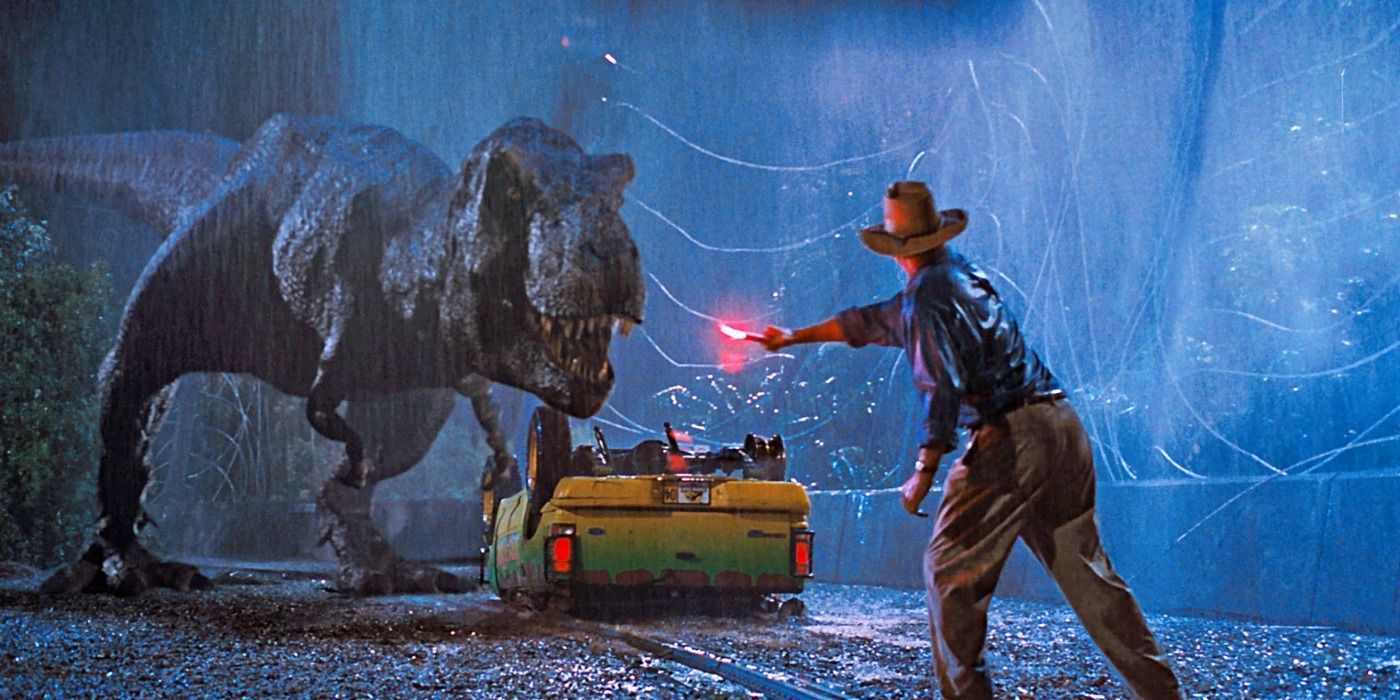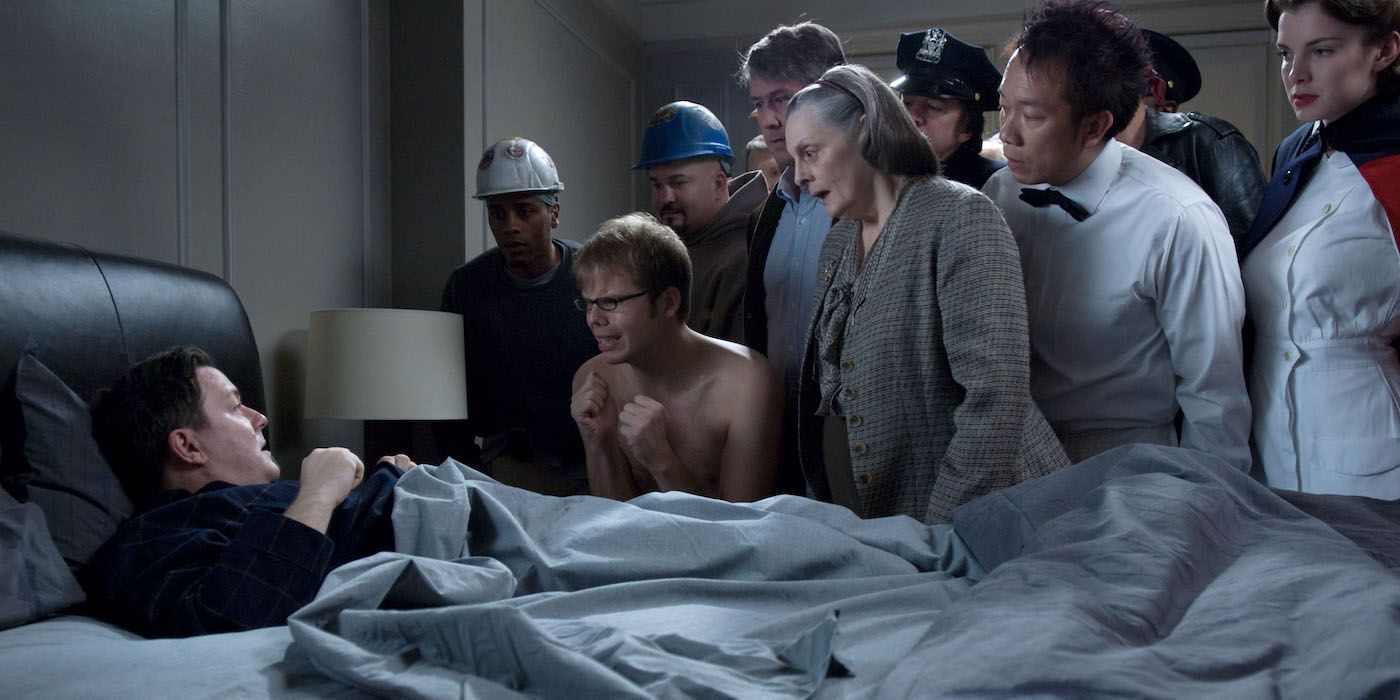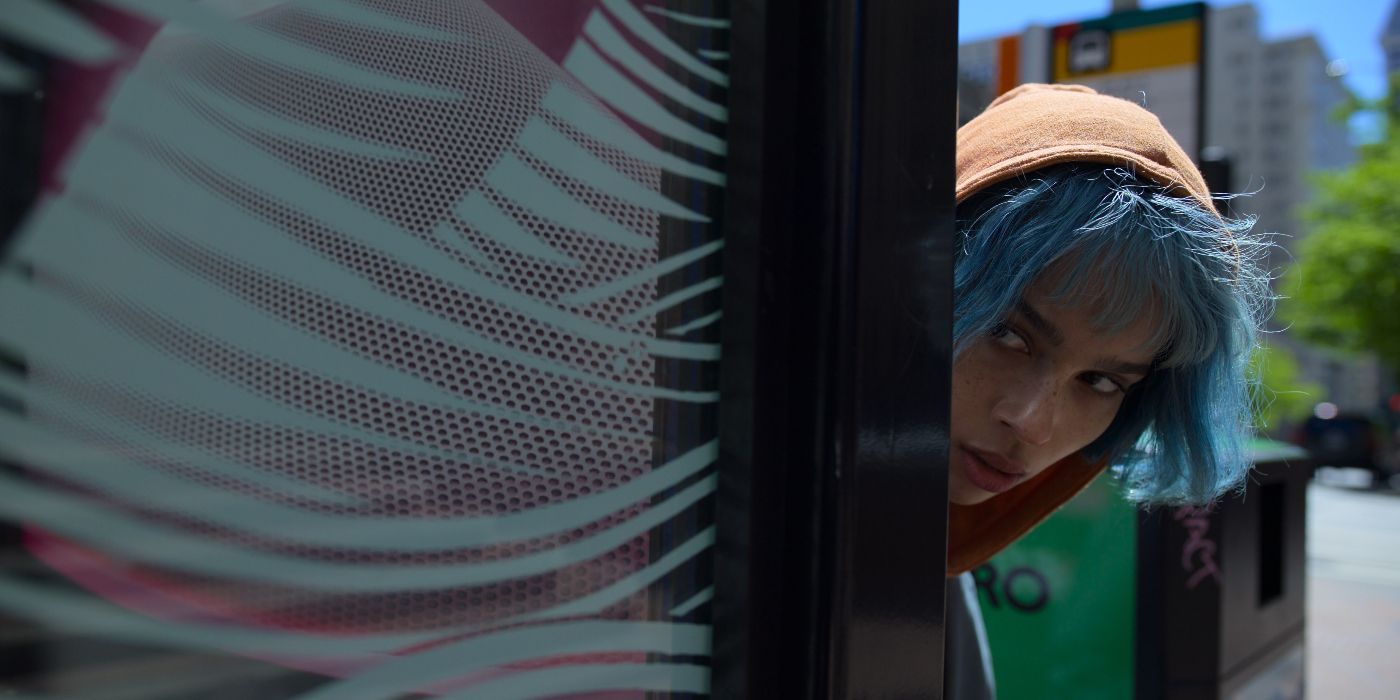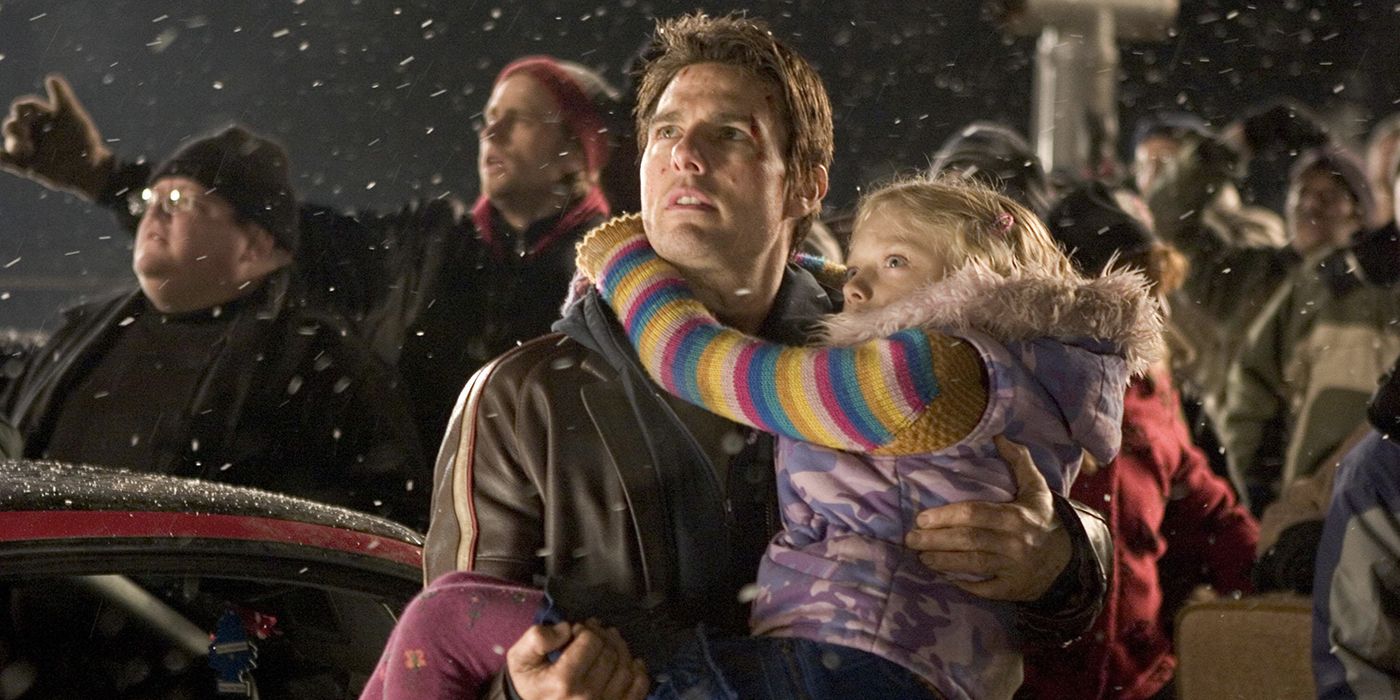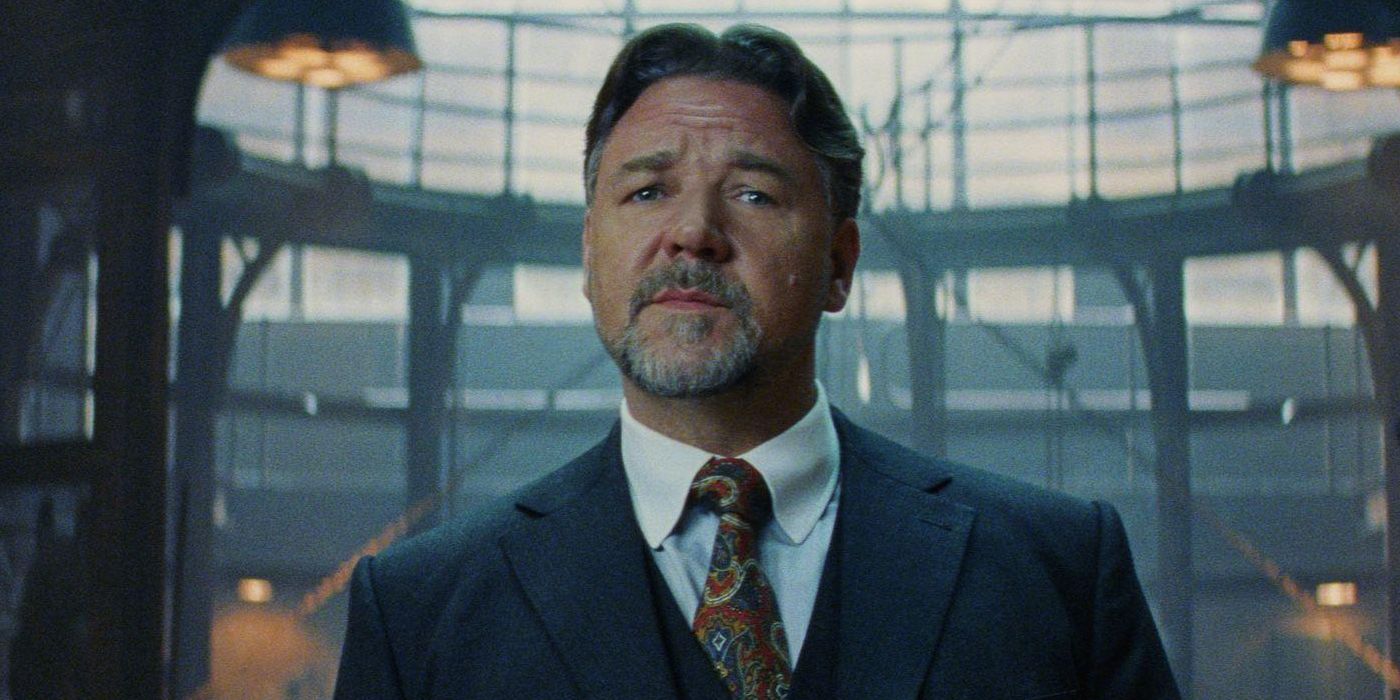It’d be hard to find a screenwriter in Hollywood who is as established as David Koepp. The industry vet has worked with some of the biggest filmmakers of the modern era from the likes of Steven Spielberg, Brian De Palma, David Fincher, Ron Howard, Kenneth Branagh, Jon Favreau, and Sam Raimi. Now he can add Steven Soderbergh to that list with the new tech-thriller KIMI, which is now available to stream on HBO Max. From some of the most influential blockbusters of all time such as Jurassic Park and Spider-Man to smaller-scale films like Ghost Town and You Should Have Left, there’s not a lot that Koepp hasn’t done yet. In the past five years, he’s also moved his talents to the literary world with his debut novel Cold Storage (which has a film adaptation in development at Paramount) and his second novel titled Aurora will hit the shelves on June 7 of this year.
With a resume as long as his own, Koepp surely has lots of stories to tell about his career as a screenwriter. During this interview with Collider, Koepp talked about his 30+ year friendship with Soderbergh and what it took for them to finally work together, as well delving into the inspiration behind the relevant themes within KIMI. He also reflects on working on his highly underrated comedy Ghost Town, collaborating with different voices, watching movies at home versus the going to the theater, the differences of writing a novel and a screenplay, if he’d ever venture into television again, what’s going on with his Blackhawks film with Spielberg, what the Dark Universe incarnation of Bride Of Frankenstein would have been like, and much more.
COLLIDER: So often, there’s a lot of movies that try to be topical or cover current events head on. One of the things I really really liked about KIMI is that you find all these hot-button topics, such as COVID, cybersecurity, Alexa-like products, big tech, the MeToo movement, and mass protests and you discuss them in this concise way in the script. How do you get all of those themes in such a quick and breezy way?
DAVID KOEPP: First of all you don’t foreground stuff. I had the idea for the script in probably 2018. I wrote it in the summer of 2020. And the summer of 2020 was quite eventful. There was, obviously we were all in lockdown still and the George Floyd protests, it was the summer of great protests around the country. So to ignore those things would seem weird. So I didn’t. It wasn’t going to be a movie about COVID and it wasn’t going to be a movie about racism, activism, and protests. But those things needed to be in it, because that’s the world we live in. So you try to find glancing blows. You try to find ways in which you can live in the world and refer to things that are on everybody’s mind, but not foregrounded and shove it down everybody’s throat. Unless it’s a movie about that. And this wasn’t. This was a movie about this young woman, her personal struggles and the terribly dangerous situation she finds herself in.
The most interesting subjects in the movie are, you know, what’s up with these listening devices we all agreed to put in our homes. And why did we do that? And who’s listening to them? And I read an article somewhere about, not only the Amazon-Arkansas case which is referred to in the movie, but the people who listen to them as their job and correct bad interpretations or monitor them in one way or another. And I was interested in those people and what their lives must be like and what that experience must be like.
So long answer to a short question, you try to be subtle and in doing that you have to have a collaborator who sees it the same way that you do. You need a director who’s capable of subtly and thankfully Steven is a master of it and he can get stuff in very subtly but have it still register.
There’s a lot of similarities with films like Rear Window, especially at the beginning. But I also saw similarities with Home Alone and I’m not sure if they were intentional. And I know with Devin Ratray’s character-
KOEPP: That’s funny I thought that too when he was cast.
The reveal of his name being Kevin, that definitely got a laugh out of me.
KOEPP: Oh that’s a coincidence. But yeah, good point.
Do you usually have actors in mind when you’re writing the script or even a director in mind, especially when writing a spec script such as this?
KOEPP: Well two questions there really, let me do the first one first. The influences, you know Rear Window is the grandaddy of surveillance thrillers, obviously and the illusions there are clear. The other antecedents, people have pointed out The Conversation, Blow-Out, and those, I wouldn’t say directly affected me, but certainly there are parallels. But they go back even further to the 40s, Sorry Wrong Number, the Anatole Litvake movie from 48 with Barbara Stanwyck, she overhears plans of a murder on her telephone party line.
The party line was sort of the Alexa of its day for the 40s. A piece of technology. It gives her information she shouldn’t have and what she's gonna do and she’s also a very vulnerable person. It’s a story that’s been told for a long time. There’s a lot of women in peril examples from film noir. And this, I thought very kin to those.
In terms of casting. I try hard to keep actors out of my mind as I’m writing. Because, I want the character to be the character. And you know, if I’m writing toward an actor, I’m already tailoring it to fit that actor even subconsciously. And I don’t want to do that yet. The actor is gonna come in soon enough. Hopefully. If all goes well. Things will get adjusted for them, whether it will happen. I like to try and keep that character, the character.
Also if you picture someone too specifically for too long, you know invariably you’ll offer it to them and they’ll say “no”. The one you write it for will never be the one who says ‘yes’. Then you’re kind of stuck because you had your heart set on so-and-so and they didn’t want to do it and now you have to shift your thinking to another actor. So I try not to think about actors when I’m writing.
You’ve worked with some of the best and most prolific filmmakers in the industry, I have to admit I’m a die-hard Steven Spielberg fan.
KOEPP: Sure.
You’ve also worked with Brian De Palma, Sam Raimi, Kenneth Branagh, who’s now up for an Oscar this year with Belfast. You’ve worked with Zemeckis, Ron Howard, Fincher. The list goes on and on. How did you come into contact with Soderbergh? Had you known him previously?
KOEPP: Yes. I’ve known him for about 30 years, oh god, more. Our first movies were on the festival circuit at the same time in ‘89. His of course being Sex Lies And Videotape and mine being Apartment Zero, which was a indie thriller. Or a lurid indie drama.
So we were trying the other day, in some joint interview, to try and remember when we met and neither of us could come up with it. But it was around that time, I was aware of his work, he was aware of mine. Probably at someone’s house, we ran into each other.
So we’ve known each other for a long time and we tried, maybe two or three times over the years, to come up with something to do together. But it didn’t ever quite click. We were friends. We stayed friends.
I was living in London in 2018 and met him for a drink. And I told him I read this article, that I thought was fascinating and thought it would be a good premise for a movie and he said “that is good. Write that.” And then in a scant two years later, I got around to writing it and he said ‘great, let’s do it’.
Did you interview any people who were involved with Alexa or have experience with that when writing the script?
KOEPP: I didn’t. I research a lot and many times I will interview people. There’s obviously so much information available on the internet and for this I didn’t feel like I needed anybody’s individual experience. I felt like I was making up my own person and I knew the tech world pretty well. I knew the kind of person I wanted to write and I know some people like that. You’re always, of course, putting parts of yourself in that person.
So I felt like I didn’t, to answer your question. Some projects demand that and others don’t. And I didn’t think this one required that.
One of the biggest stand-outs was Soderbergh’s filmmaking style. Especially with how he changes up his direction with the indoor and outdoor scenes. Did you have a really collaborative process even during filming? Or was it more just you wrote the spec and you gave it off to him?
KOEPP: No, the collaboration occurs prior to filming. I told him the idea that I wrote, sort of an outline or treatment type thing and sent him that. He had some reactions to that. He had some very good ideas. It’s great if you can get the director’s ideas prior to writing the script. It saves you a lot of aggravation.
Because then you can get him in the script the first time you write it and it works kind of seamlessly. And then you rewrite it a number of times, leading up to shooting. Once shooting starts, unless you’re with a director who really likes to explore and find the story as they shoot. And you can tell by my expression, that’s not my favorite kind of way to work.
I really liked to have found the story and nailed things down beforehand, so that everything can now go seamlessly and Steven’s the same way. So I went to the set a couple of times at the beginning, just because, you know, it's exciting and you want to see what the set looks like and meet the actors and that’s all fun. But then, he’s got his plan, very, very, clearly in mind. And because he shoots himself, he likes to shoot his own stuff. He knows what he wants to get out of it and he’s gonna go get it. So there was never a moment where he turned and said ‘what did you think of this lamp?’ because that’s just not him.
I will say, you referred to how the style of the film changes, halfway through. From the graceful, gentle moving things in her apartment to the sort of frenetic style when she goes outside. Obviously that’s him and his design but it is suggested in the script.
In around about page 50, when she leaves the apartment, it says something like ‘she steps outside and after being inside for so long, the noise and light are overwhelming.’ So that suggests to a director, hey this has to be different. So you’re trying when you write a script to make a reading experience feel like the movie-watching experience, so you have to say a few things like that. The trouble is if you say too many, it not only bogs down your read, but it tends to irritate a director. Because they’re like 'hey man, I’ll figure out the visual style, you just tell your story.’
I think one of the most interesting things about both you and Soderbergh, and even what you have a lot in common with Spielberg, is just how diverse your filmography is. You’ve written some huge big-budget movies, like the original Jurassic Park or the first of the Sam Raimi Spider-Man movies. But you’ve also done a lot of smaller movies, like You Should Have Left over at Blumhouse or even KIMI. What is the difference between writing these much lower budget movies compared to working on a mega-budget 4-quadrant blockbuster?
KOEPP: Level of input. When you’re working on something smaller or you’re working with a powerful director, the degree of focus is much higher. It’s you, the director, and maybe somebody they trust and then it's your lead actors. That’s it.
So with You Should Have Left it’s me and Kevin [Bacon] and Blumhouse. But it’s really me and Kevin. With KIMI it’s me and Soderbergh. Anytime you work with Spielberg, it’s you and him, because he doesn’t have to take a lot of input and does a lot.
Now other big projects, that are expensive, they don’t have the luxury of shutting themselves off like Spielberg does, so you’re going to get a lot of people talking. I remember Spider-Man, there were several people at the studio who wanted and had the right to input. There was a powerful producer, there was a strong director, and there was a comic book company. There were a lot of voices that you had to work with. It resulted in a very good film, I would say not because of the number of voices involved, but in spite of the number of voices. Because it’s difficult to have a lot of diverse opinions, resulting in a good coherent film. It happens, but it’s difficult.
You’ve also worked as a script doctor on a lot of films and that’s a career that’s greatly fascinating. Because you’re going into a film, that’s already in the midst of production or even reshoots. Could you delve into what exactly a script doctor does, for people who are unaware of what that is?
KOEPP: Well I’ve only done it a few times. Maybe a half dozen in my whole career. Because, I don’t really love that kind of work. My favorite thing to do is to start on something from the idea phase and take it all the way through looping. That’s what I like to do.
But they’re interesting sometimes and you know they pay you, which is nice. Sometimes you’re working with people that you’d like to get to know better or that you already know and they say “Hey, could you help out on this?” So there’s a lot of reasons to do it. They are kind of fun, because when you come in, they’re not calling you in and bringing you in to show you how well it’s all going. They call you in because there are problems. Maybe tempers are already a little short, things are quite working out, so you’re welcomed quite nicely. And you can quickly become more perceived as more part of the problem and that’s a bummer. You’re also asked to address a specific set of problems, so rather than using your originative creativity, you use your adaptive creativity and think “well how can I fix this?” I like that. Screenwriting is a skill developed over time, like carpentry, sometimes you’re called in to build an entire house and sometimes you’re called in just to do the kitchen cabinets. And so it’s fun. Sometimes, you want to build a great set of cabinets for somebody if that’s what they need.
A lot of your films come from across all genres, from dinosaurs and superheroes. But one of the films that I remember and a friend of mine brought it up the other day was Ghost Town and I knew I had to bring that up here. That stuck out as one of the only true comedies you’ve written. I’m a junkie for comedy films and that was Ricky Gervais’ American breakout moment. I have to ask, is comedy ever a genre you’d ever want to return to?
KOEPP: Well I tried it again, I did another would-be comedy after that, in maybe 2016, which was a disaster. It was just a terrible, terrible disaster. On all levels, financially, critically, commercially, personally. It was just a hydrogen bomb. And I was told, repeatedly, it was not funny. I try to do all kinds of movies, because I like all kinds of movies. And I try to exercise those muscles to the point of failure. I try to do something until I prove to myself until I really actually shouldn’t be doing that. And I think that was a case where I proved I shouldn’t be doing that.
Ghost Town is a beautiful movie that I hope everybody sees. I’m very proud of it. But like all good movies, one of the reasons that it works is because it was a number of people coming together and all doing great work at the same time. That movie obviously would not have been half as funny without Ricky Gervais. Ricky was brilliant. It might not have worked without him. The script wouldn’t have been half as good and heartfelt without John Kamps who I wrote it with. Téa Leoni came in and she is a brilliant comedienne and comic actress. And Fred Murphy who just shot New York so beautifully. So all that stuff comes together. Had any of those pieces not been as good as they were, the movie wouldn’t have worked as well. It’s a little lightning in a bottle if you catch it or you don’t.
You mentioned Spielberg and Soderbergh both try to mix up their genres a lot, it's true, and so do I. Soderbergh once said, I asked him about something that was such a radical departure from the previous thing, and he said “Just trying to throw them off the scent.” Which I thought was great.
You just mentioned a swing and a miss with Mortedcai. But I think in the age of streaming, it allows filmmakers to take bigger risks than they typically can do on a studio level. I know some filmmakers aren’t too fond of streaming, but Soderbergh has delved all the way into with movies for both Netflix and HBO Max. What are your thoughts on the state of streaming and everything shifting to these services unless it’s a big tentpole type of project?
KOEPP: I keep lists of the movies I see every year, I’ve done it for years. And I’ve started noting whether I see it in the theater or see it at home. I was looking at it the other day and I noticed “Wow, I’ve had some really great film experiences watching a movie at home” and I’ve had great ones in the theater but I’ve also had big bummers in the theater where it wasn’t any good. And I love the experience of going to a movie and I’ll do it forever. But I also love the experience of watching a movie at home, especially because TVs got so big and nice. So I don’t really care. I used to, five-six years ago, I was all worked up. “Oh no, it must be in theaters.” Now I don’t feel that way. When you make a movie for a streamer, the experience is exactly the same. You’re still doing exactly what you would’ve done if it was going to be in a thear. And people enjoy them. People have a voracious appetite in fact, for entertainment at home and films at home. So I don’t care. I want to tell my story and if my story is the type of thing people would rather see at home than in a theater and I think KIMI is, then that’s where we should make it for. I think it will find its level, it will find where it needs to be naturally.
The line between television and film is constantly blurring even more in the age of streaming. Is television ever something you’d want to explore again? Or are you more into just focusing on film?
KOEPP: I think so. I mean I’ve tried once or twice to come up with what I thought would be a good either, you know, series or limited series. I just understand movies better. I’ll try again. I would like to eventually. Because I like working on a bigger canvas.I don’t know if I’d ever want to be on something that runs for more than one season. But, a six or eight-hour or ten-hour limited series, I’d be really into that because I’ve written a couple of novels now and I really like a longer form. So, I’d be interested to try writing, you know, instead of 120 pages to try writing 480 pages of a story and see how it goes and see what’s that like.
So speaking of your novels, your first novel, Cold Storage, is being made into a movie at Paramount, but it has been awhile since we’ve heard anything. Has there been any recent updates on the project?
KOEPP: Yeah, it’s moving along but we’re not ready to announce it yet, but we have a great piece of casting in place and we’re supposed to start shooting in July. But it’s not, you know, everything’s not signed and delivered yet, so hopefully soon. It’s supposed to start in July.
I know you also have another book coming in the summer, correct?
KOEPP: June 7. It’s ‘Aurora’.
Do you write your novels, with a film in mind? Or do you just think of the book first? I know you have the mind of a screenwriter.
KOEPP: Book first. I definitely think of the book first. It’s very different, you know. You’re writing in a book, you get to go inside what somebody’s thinking, you can stop for three pages and talk about when they were ten years old, it’s just all very different.
But structurally, they’re very much like movies. You can’t turn off 30 years of screenwriting, that impulse to structure stories must have a beginning, middle and end and follow a certain flow of events. That doesn’t change when I’m writing a book.
OK, so I do have some other questions, but if you can’t answer, you don’t have to. Though the Spielberg fan in me has to ask about this. Whenever you’re announced to be working on something with him, I get instantly excited.
KOEPP: Oh, that’s good. Thank you.
One of the pieces of news that came out back in 2018 that had me unbelievably excited, was the Blackhawks movie with Steven Spielberg, because I never expected that. I know he’s done a lot of films in-between that time, he just did West Side Story and that is up for a lot of Oscars, he recently wrapped on his semi-autobiographical movie The Fabelmans and I know it was just announced that he was doing the Frank Bullitt movie as well. Has there been any movement on Blackhawks recently?
KOEPP: We have a script that’s very good and we all think it's very good. There were a lot of management changes at Warner Bros, so I think we’ve just been kind of waiting for that to settle down.and for them to decide what they want to do with their DC Universe. Obviously I hope he does it or if he doesn’t direct it, I hope he produces it, someone great directs. Because it would be a great deal of fun. I’m very fond of the script and I hope it comes together. But again, that’s one of those movies that’s gonna need $200 million so, trying to get those whales off the beach is a big process.
I was curious, since with the DC Universe, they’re going in a much different direction than what Marvel does and having everything together. Whereas DC now has The Batman which is entirely separate from the mainline films and they had Joker, which was also separate. Was this movie also going to be set in the universe of Wonder Woman and Aquaman?
KOEPP: No, and it would be hard because it’s 1941 or 1940, actually. So it would be a little tricky. As we were developing the script, we said “Hey, let’s make one great movie. It’s 1940, that’s the way it is.” And if it works out and in the future they decide they want to unite anybody, I’m sure time travel will not be a problem. Because comic books have a great way of figuring that stuff out. “We need Wonder Woman to be there!” Fine. Well, then she can, because of the ‘Prometheus Portal’. I’m like “what’s the Prometheus Portal.” “You don’t know about the Prometheus Portal?”
Speaking of Cinematic Universes, you had a hand, and I’m sorry if this brings up any bad memories, but with the Dark Universe. One of the more interesting projects in development there was the one you were announced for was Bride of Frankenstein. I recall you saying, around a year ago, that you were reworking the script.
KOEPP: I did a couple different versions. That one was a dramatic history. It was gearing up, it was gonna be a great big movie. Bill Condon was gonna direct it and then The Mummy detonated and that all fell apart. Then I did a much smaller version and I thought that was interesting, but that didn’t quite work out. I think someone else is taking a try now. So, I don't know. I felt like Bride Of Frankenstein is a treasure obviously and it doesn’t belong to me. And I got two really good cracks at it, so definitely fair to let someone else have a try. So I don’t know what will work out with that.
Are you allowed to say what this Dark Universe Bride Of Frankenstein was gonna be like with Bill Condon directing?
KOEPP: Oh yeah, sure. It was going to be a very big lavish, beautiful, gothic horror production. And one idea I liked was the first thirty or forty pages took place in the 1870s as the Frankenstein movies do and then she became sort of inert for 150 years and was rediscovered and reawakened in the present day. And I thought that was cool.
So like other projects, that I know kind of fell through, one of them that I remember years and years ago, like when I was first starting to use the internet, you were announced to be working with Ron Howard on a Spy Vs. Spy movie.
KOEPP: Oh yeah. Oh you’re picking at all the scabs. I don’t know what became of that. Didn’t work out. I was a producer, I didn’t actually write on that one. That must be still kicking around someplace.
I’ve just always been a big fan of that comic strip in MAD Magazine. I was just very curious.
KOEPP: I’m surprised they haven’t made it yet. It’s such an obvious movie, it seems.
So one last question, There’s a lot of aspiring screenwriters out there, but they're out of the LA area. Do you have any pieces of advice for a young aspiring screenwriter, maybe they are still in high school or college?
KOEPP: Just write, write all the time. Try to write everyday if you can. There’s a lot of worry about, you know, how will I get an agent, should I meet producers. That stuff doesn’t matter as much as writing a good screenplay. If you write a good screenplay, everything else tends to solve itself. And the good news is, it’s the only thing you can actually affect and decide to work on. You can’t affect a lot of the other stuff, but you can affect how long and how hard you work.
Kimi is now streaming on HBO Max.

